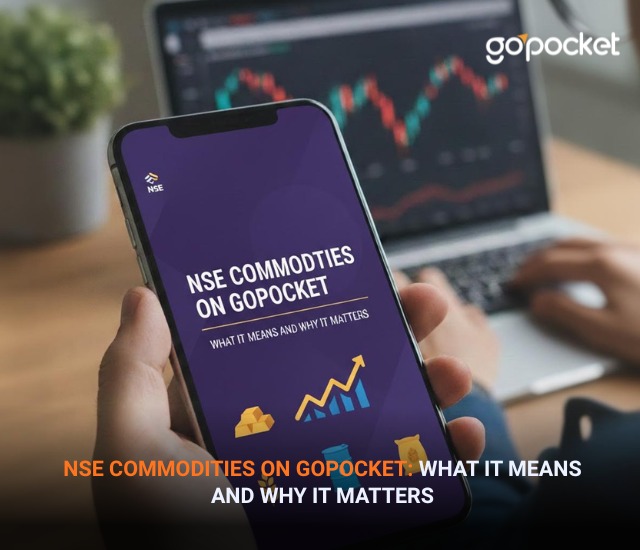
THE SURPRISING LINK BETWEEN GLOBAL EVENTS AND COMMODITY PRICES
Imagine this: You’re enjoying your morning coffee, scrolling through the news, and suddenly you read about a major storm hitting a distant country. You don’t think much of it – after all, it’s happening far and all the way too long, and your day normally goes on. But did you know that storm could ripple all the way to the price of your latte or the cost of everyday goods?
Welcome to the fascinating world where global events and commodity prices dance together – often in surprising ways.
WHAT ARE COMMODITIES, ANYWAY?
Before we dive into the story, let’s break down what commodities are. Simply put, commodities are basic goods that people buy and sell – things like grains, metals, oil, coffee, sugar, and even natural gas. These are raw materials that build our materialistic globe and keep it running.
When you hear about gold or oil prices changing, you’re hearing about commodities in MCX too in action. But it’s not just those two – countless commodities move up and down in price all the time.
THE WORLD IS CONNECTED – MORE THAN YOU THINK
The reason commodity prices change so much is because the world is deeply connected. What happens in a far-off place can change how easily a commodity can be found and how eager people are to get it – and that chain reaction can push prices up or down across the globe.
Let’s take a real-world example:
A STORM’S RIPPLE EFFECT
Say a big storm hits a coffee-growing region in some far-place say in the other hemisphere maybe a top producer of coffee beans. That storm damages crops, cutting down the amount of coffee beans harvested that year.
Less coffee means less supply. But coffee lovers around the world still want their daily cup, so when supply drops and demand stays the same, the price naturally goes up.
The price jump travels through the chain - from the farmers who grow it, to the traders who sell it, and finally to you when you pick it up at your favorite cafe or supermarket. So, a storm you barely noticed became part of a chain reaction affecting prices globally.
POLITICAL SHIFTS AND TRADE POLICIES
It’s not just weather. Political events can also move commodity prices. For instance, if two countries that trade a lot of oil or metals start a dispute or change their trade rules, that can disrupt supply routes or increase costs.
Imagine if a major metal exporter suddenly limits shipments. Industries relying on those metals - from production of cars to electronics - facing deficits and prices may increase as a result.
TECHNOVATION IMPACT COMMODITIES TOO
Sometimes new technology changes how much of a commodity is needed or produced.
For example, as the world shifts toward battery vehicles, the demand for metals like lithium and cobalt used in batteries has grown significantly. This demand change pushes prices up and shifts focus to new commodities that were once overlooked.
WHAT DOES THIS MEAN FOR YOU?
You might wonder, “Why should I show importance if commodity prices change?”
Here’s the answer:
Prices of these commodities influence the cost of many things we use daily – food, clothes, fuel, gadgets, and even construction materials. When prices rise or fall, it affects the overall economy and, in turn, your purse too!
Understanding how global events connect to commodity prices can help you make smarter financial choices. It’s like seeing the invisible strings that tie your everyday life to far-off places and big events.
THE STORY DOESN’T END HERE
Every day, the world throws new surprises – from natural disasters and political developments to shifts in technology and consumer habits. Each event is a new chapter influencing commodities in ways both obvious and subtle.
This ever-changing story makes commodities markets exciting and dynamic. Whether you’re a seasoned investor or just curious, appreciating this connection is the first step in understanding how global forces shape markets.
If you’re interested in exploring how commodities fit into the bigger financial picture, reliable platforms like GoPocket provide the tools and support to learn and grow your investing journey – all in a way that’s approachable and respectful of your goals.

FINAL THOUGHTS
Next time you hear about a global event – a storm, a trade deal, or a new invention – think about how it might be influencing the prices of everyday commodities. Behind every price tag, there’s a story waiting to be discovered.
"Investments in securities market are subject to market risks. Read all the related documents carefully before investing."
What's Trending
Recent Blog
Open Your Demat Account in Under 5 Minutes
Have any queries? Get support
Blog
Recent Blogs

Open your GoPocket Account within 5 minutes.
Have any queries?





.jpeg)









